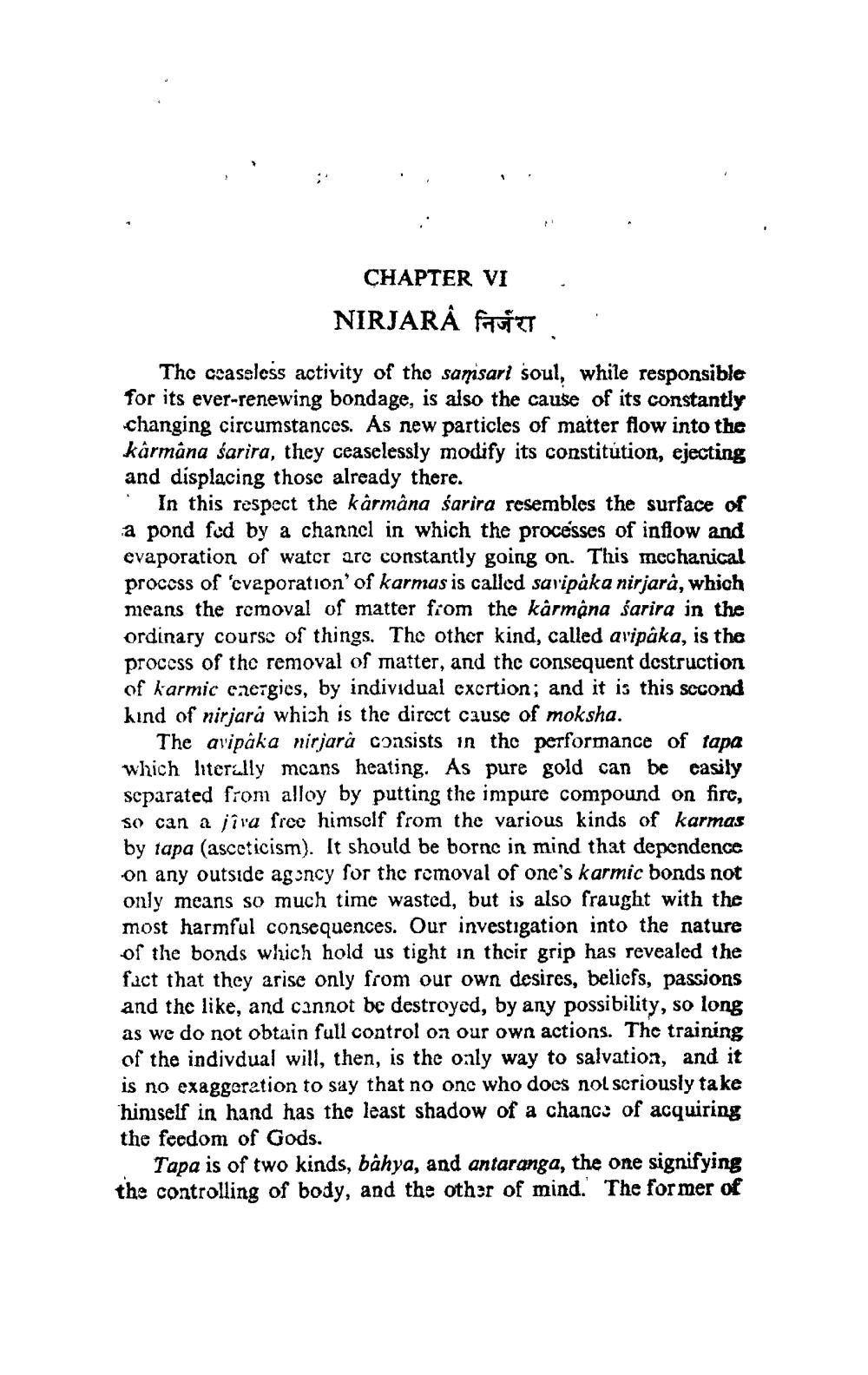________________
CHAPTER VI
NIRJARA निर्जरा
The ceaseless activity of the samsari soul, while responsible for its ever-renewing bondage, is also the cause of its constantly changing circumstances. As new particles of matter flow into the karmâna sarira, they ceaselessly modify its constitution, ejecting and displacing those already there.
In this respect the kârmâna sarira resembles the surface of a pond fed by a channel in which the processes of inflow and evaporation of water are constantly going on. This mechanical process of 'evaporation' of karmas is called savipâka nirjarà, which means the removal of matter from the kârmâna sarira in the ordinary course of things. The other kind, called avipaka, is the process of the removal of matter, and the consequent destruction of karmic energies, by individual exertion; and it is this second kind of nirjara which is the direct cause of moksha.
The avipaka nirjarà consists in the performance of tapa which literally means heating. As pure gold can be easily separated from alloy by putting the impure compound on fire, so can a jiva free himself from the various kinds of karmas by tapa (asceticism). It should be borne in mind that dependence on any outside agency for the removal of one's karmic bonds not only means so much time wasted, but is also fraught with the most harmful consequences. Our investigation into the nature of the bonds which hold us tight in their grip has revealed the fact that they arise only from our own desires, beliefs, passions and the like, and cannot be destroyed, by any possibility, so long as we do not obtain full control on our own actions. The training of the indivdual will, then, is the only way to salvation, and it is no exaggeration to say that no one who does not seriously take himself in hand has the least shadow of a chance of acquiring the feedom of Gods.
Tapa is of two kinds, bâhya, and antaranga, the one signifying the controlling of body, and the other of mind. The former of




